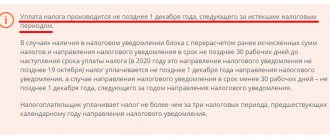The end of the trial ends with a verdict. If the guilty person is truly a criminal, then a preventive measure will be chosen for him. Crimes that do not pose a particular danger are usually punished more leniently.
Execution of punishment in the form of correctional labor is considered one of the most popular types of criminal sanctions. In this article we will look at how correctional labor is served, as well as the conditions of such punishment.
Correctional work. What is this?
With this type of sanctions, the employee is required to work at the place of his work activity. Part of the salary is withheld into the state budget. Control over the fulfillment of obligations is carried out by the criminal-executive inspection of the area in which the guilty person lives.
Execution of punishment in the form of correctional labor may be imposed:
- Working criminals according to their place and their work activity.
- Idle criminals. In this case, the place of work will be determined by the local administration. However, it must be located in the area where he lives.
This type of sanctions can last from two months to two years. For minor children - up to one year.
Execution of punishment in the form of corrective sanctions can only be imposed as the main measure. It can be used in the following cases:
- If this is provided for in the article.
- As a milder punishment.
- When replacing a fine.
- For unserved part of the prison term.
- As a more severe sanction for amnesty or pardon by the president of the country.
Correctional work may be assigned with a probationary period. If during this period there are no claims against the culprit, he will be released from them. This measure is applied exclusively by court verdict, and, as a result, entails a criminal record. You can pay it off after a year.
How to serve correctional labor?
Compulsory and corrective labor are two independent types of punishment provided for in Art. 44 of the Criminal Code of the Russian Federation. The procedure for their appointment is regulated according to Art. 49 and 50 of the Criminal Code of the Russian Federation. And the procedure for execution is Chapters 4 and 7 of the Penal Code of the Russian Federation.
Both of these types of punishment can be imposed on convicted persons only as a main punishment. While serving these types of punishment, convicts are required to work.
However, this labor is not forced or compulsory labor prohibited by the International Labor Organization Convention, where Art. 2, the concept of “forced and compulsory labor” excludes any work or service required of any person as a result of a sentence passed by a judicial authority, provided that this work or service is carried out under the supervision of state authorities.
And that the said person will not be handed over to private individuals, companies and societies. This is what is written in this convention, that is, it is not slavery. The content of correctional labor consists in the person serving the term specified in the court verdict at the place of work, as well as withholding from 5% to 20% of the convict’s earnings as state income.
And for persons who do not have a main place of work, they are also obligated to find employment in places determined by local government bodies in agreement with the criminal executive inspectorates. But at the place of residence of the convicted person.
From the wages of the convicted person in both cases, no matter how he serves his sentence, either at his main place of work, or through employment with the penal inspection, from 5% to 20% of their earnings are withheld.
While serving a sentence, the convicted person is limited in a number of rights. For example, while serving correctional labor, convicts are prohibited from leaving their place of work without the permission of the penal inspection.
The next vacation in the amount of 18 working days is provided by the administration of the enterprise, also only with the permission of the criminal-executive inspection. It is in the presence of these restrictions that the punitive content of correctional labor lies.
It should be borne in mind that when making deductions, the size of both the monetary part of wages and wages in kind, if any, is taken into account. However, no deduction is made from Social Security and Social Security benefits. Except for unemployment benefits.
Money is also not deducted from travel expenses and from compensation for unused vacation. Correctional labor is assigned within the sanction of the article of the Special Part of the Criminal Code of the Russian Federation for a period of 2 months to 2 years, and for minors for a period of 2 months to 1 year.
If a person, after the verdict has entered into legal force, is still fired, in this case the responsibility for employment will lie with the criminal-executive inspection at facilities agreed upon with local government bodies.
What is the difference between compulsory labor and correctional labor?
The content of the punishment in the form of compulsory work consists in the prisoner performing free community service during his free time from his main work or study, the type of which is also determined by local government bodies, in agreement with the criminal-executive inspection.
Compulsory labor, as well as correctional labor, is assigned within the sanction of the article of the Special Part of the Criminal Code of the Russian Federation for a period of 60 to 480 hours, and for minors for a period of 40 to 160 hours.
Types of compulsory work
Types of mandatory work include:
- landscaping and landscaping;
- redecoration of buildings and premises;
- auxiliary work in construction that does not require professional training;
- work in municipal health care institutions for patient care;
- sewer cleaning works;
- Furniture assembly;
- seasonal assistance in the provision of agricultural work and procurement of agricultural products;
- cleaning of the street and road network, lawns, and adjacent areas;
- participation in the restoration of historical and architectural monuments and complexes;
- participation in the construction of housing and reconstruction of the housing stock, as well as objects of socio-cultural significance;
- participation in the construction of roads, laying communications and other types of work.
Under what articles is punishment in the form of compulsory and correctional labor most often applied?
The types of punishments under consideration have a fairly wide range of applications. It is almost impossible to single out a specific group of crimes for which punishment in the form of correctional and compulsory labor is imposed.
It can be said that most often these types of punishment are provided for by the sanctions of articles of the Criminal Code of the Russian Federation, which establish criminal liability for the commission of crimes of minor and medium gravity, or crimes that have a careless form of guilt.
For example, punishment in the form of correctional labor can be imposed even for murder or causing grievous bodily harm, but only if these crimes were committed through negligence, or in a state of passion, or when the limits of necessary defense were exceeded.
Punishment in the form of compulsory labor is often provided for by the sanctions of articles establishing criminal liability for committing various types of theft - theft, fraud, unskilled robbery.
In addition, these types of punishments can be imposed even if they are not provided for by the sanction of a specific article of the Criminal Code of the Russian Federation.
In this case, the court must establish in accordance with Art. 64 of the Criminal Code of the Russian Federation is an exceptional set of mitigating circumstances, giving the court the opportunity to impose a punishment more lenient than provided for by the sanction of the article of the Criminal Code of the Russian Federation, which provides for criminal liability for the commission of a particular crime.
Are there exceptions for those who are not assigned compulsory and corrective labor?
Yes, there are such exceptions. Both compulsory and correctional labor cannot be assigned to persons:
- recognized as disabled people of group I;
- pregnant women;
- women with children under 3 years of age;
- military personnel undergoing military service upon conscription;
- military personnel undergoing military service under a contract in the positions of privates and sergeants, if at the time of the court’s verdict they had not served the statutory term of conscription service.
Also an obstacle to the assignment of correctional labor are the limits provided for by the Labor Code of the Russian Federation for minors. In this case, we mean the age group from 14 to 16 years, when either the consent of the parents or the guardianship authority is required to conclude an employment contract.
Can a person who has been sentenced to correctional labor serve it on his own if he is an individual entrepreneur?
If we talk about compulsory work, then a person cannot serve it at home, since this punishment is served only in his free time from his main job and only at facilities established by local government bodies, agreed upon with the criminal-executive inspection.
And the duration of compulsory work cannot exceed 4 hours on weekends and on days free from main work or study, as well as when a person is not working or studying. And on days when a person works or studies, the duration of compulsory work cannot exceed 2 hours after a working day or after graduation.
But as for correctional labor, it is assigned to a convicted person both who has a main place of work and who does not have a main place of work. A convict who has a main place of work, as we said earlier, serves his sentence only at his main place of work and cannot be dismissed in connection with this.
A person who does not have a main place of work is, accordingly, employed by the criminal-executive inspection at facilities determined by local government bodies.
Moreover, when determining the presence of a main place of work, the requirements of the Labor Code of the Russian Federation must be taken into account that labor relations arise only if there is an employment contract between the employee and the employer. With the exception of employers - individuals who are not individual entrepreneurs.
Such an employer keeps a work book for his employee who has been working for him for more than 5 days. And only if this place of work is the main one for the employee.
Thus, the presence of a main place of work is determined by the presence of an employment contract and the place where the work book is kept. The main place of work should also be considered the work of persons engaged in entrepreneurial activities, if they are registered as an individual entrepreneur in the manner prescribed by law.
They engage in this activity, so to speak, at their own peril and risk. And this activity is aimed at systematically generating profit from the use of property, the sale of goods, and some other labor activity.
Thus, this type of punishment can also be served by an individual entrepreneur who is registered as such a person in the manner prescribed by law.
What threatens a person who evades compulsory and correctional labor?
In case of malicious evasion from serving compulsory or correctional labor, they can be replaced with a more severe type of punishment. And in this case we are only talking about imprisonment.
These types of punishment are replaced by imprisonment at the rate of 1 day of imprisonment - 8 hours of compulsory labor, or 3 days of correctional labor. The exception is minors, who, in accordance with Art. 88 of the Criminal Code of the Russian Federation, punishment in the form of imprisonment cannot be imposed at all.
This is the age group from 14 to 16 years - committing a crime of minor gravity, for the first time, and the age group from 16 to 18 years - committing a crime of minor gravity, for the first time. The decision to replace the sentence is made by the court on the proposal of the criminal-executive inspection.
How often do courts have to increase penalties?
Firstly, we are saying that punishment in the form of compulsory and correctional labor can only be replaced by actual imprisonment. Here the application of the provisions on conditional sentencing is no longer possible.
Since both correctional and compulsory labor refer to real types of punishment. Not so often, but courts have to consider such materials based on the submissions of the criminal-executive inspection. It is possible to resolve the issue of replacing compulsory or correctional labor with imprisonment only with the participation of the convicted person himself.
And when considering such issues, the courts carefully establish the reasons why the convicted person did not begin serving these types of punishment, or stopped serving this type of punishment on his own.
There may also be valid reasons for this. For example:
- loss of ability to work;
- the presence of a serious illness that prevents the performance of work duties.
But, there are cases of malicious evasion, and cases when convicts are hiding from the penal inspection authorities. If the convict has escaped from the criminal-executive inspection, in these cases the criminal-executive inspection is responsible for carrying out initial investigative measures.
And if the location of the convicted person as a result of these search activities could not be established, then this issue is considered by the court on the proposal of the criminal-executive inspection, but without the participation of the convicted person himself.
How effective are punishments such as correctional and compulsory labor?
Do people then have relapses and are subsequently caught with more serious charges? Of course there are. Recidivism in our state is quite high. And such types of punishment as compulsory and correctional labor are therefore most often applied to persons who have not previously been convicted.
Or to persons who do not have outstanding convictions in accordance with the procedure established by law. Like any other type of punishment, like imprisonment, it is not a guarantee that a person will not commit a crime again in the future.
There are cases when crimes are committed while serving a sentence in the form of compulsory or correctional labor. Just like people commit crimes while on probation.
But it is impossible to say that this is the norm for our state. Still, this is the same type of punishment that is served and which has a certain educational effect on the convicted.
Moreover, the control by the criminal-executive inspection is quite strict. During the period of serving these types of punishment, the convicted person:
- cannot change his place of residence without the permission of the penal inspection;
- is obliged to appear when called by employees of the penal inspection to report on how he is serving his sentence. how he complies with the terms of the employment contract existing in the organization where he is serving his sentence;
- If the convicted person does not appear when summoned by the penal inspection, forced arrest may also be applied to him.
These are the conditions the convicted person must comply with.
Where do the perpetrators serve their sentences?
If a citizen is officially employed, then he is punished at the place of his work, but with restrictions. Part of the salary will be withheld to the state budget. In addition, the vacation will be shorter, he will not be able to resign of his own free will, and so on.
If the culprit works unofficially, then he is considered unemployed.
If a citizen has found a job during the trial, he must provide the court with a certificate of official employment, which will be filed with the case file. If this is not done, the judge will not be able to determine the punishment at his place of work.
Place of work
In most cases, this type of sanctions is carried out at the main place of work of the culprit.
Expert opinion
Bikmaeva Elmira Fanovna
Arbitration manager with more than 10 years of experience
Persons without work will be sent to where the local administration determines. The main thing is that the work is located in the area where they live. Legislative acts do not have indicators on the basis of which the local administration can select facilities and places for serving a sentence.
When making this choice, the inspectorate takes into account the severity of the crime, the place of residence of the convicted person, his state of health, profession, etc. It is worth noting that the convicted person does not have the right to refuse the chosen place to serve his sentence.
2.1. Place of work
As a rule, correctional labor is served by convicts at their main place of work (Part 1 of Article 39 of the Criminal Executive Code of the Russian Federation, hereinafter referred to as the Penal Code of the Russian Federation).
For persons who do not have a main place of work, the object of work is determined by local government bodies in agreement with the penal inspections (hereinafter referred to as the Penal Inspectorate), but in the area of residence of the convicted person (Part 1 of Article 39 of the Penal Code of the Russian Federation).
In accordance with paragraph 70 of the Instructions for organizing the execution of sentences and measures of a criminal legal nature without isolation from society, approved by Order of the Ministry of Justice of the Russian Federation dated May 20, 2009 No. 142 (hereinafter referred to as the Instructions), when determining the place for a convicted person to serve his sentence, the inspectorate takes into account the crime for which he was convicted, his place of residence, state of health, profession and other circumstances. At the same time, the convicted person does not have the right to refuse the job offered to him (Part 4 of Article 40 of the Penal Code of the Russian Federation).
Compliance with the conditions of serving the sentence and the fulfillment of the requirements of the sentence by the organization in which the convicted person works is controlled by the Penal Inspectorate (Part 1 of Article 39 of the Penal Code of the Russian Federation).
Recruitment
Here we will consider a situation where a convicted person is sent to an organization to serve a sanction.
After the guilty person has a conversation with a representative of the criminal correctional inspection, he will be given an order to visit the company to serve correctional labor.
It is worth noting that the company has every right to refuse such an employee. However, it is important to keep in mind that in the event of an unmotivated refusal, the inspection will file a complaint with the prosecutor's office.
Article number 64.2 of the Labor Code of the Russian Federation prohibits refusing to hire employees if there are no motivated justifications for this. When hiring a person for a position, it is important to pay attention to his business qualities. You can refuse only for reasons provided for by federal law.
The order slip must be filled out and handed over to the criminal correctional inspector. This coupon, as a rule, is passed on to the future employee, but the employer company itself can do this.
Then, when the culprit is employed, the inspectorate must send a notice to the company with a copy of the contract.
Confirmation of the notification must be given personally to the inspectorate employee. It is prohibited to do this through a convicted person. All control over the employment process and its further work throughout the entire period is carried out by the inspectorate.
In practice, the employment regulations look like this:
- The Criminal Correctional Inspectorate issues an order to the culprit to report to the company to further serve his sentence.
- The guilty person submits the order to the organization.
- The company makes a decision on hiring or refuses it. Next, a tear-off coupon is filled out in order to submit it to the inspection.
- If a company hires such an employee, the inspectorate sends it a notice with a copy of the court ruling. It indicates the terms of the sanction and the amount that must be withheld monthly from the convicted person’s salary.
- The organization registers the guilty person for work. Next, fill out a confirmation for inspection in the tear-off notice slip. It indicates the position of the employee, as well as the order number.
Duration of work
The term of serving the sentence begins to be calculated as follows:
- For persons with an official workplace - the date the employer received documentation from the inspection.
- For persons who do not have an official job - the date of entry to work.
Expert opinion
Bikmaeva Elmira Fanovna
Arbitration manager with more than 10 years of experience
The period here is calculated in months and years during which the sentenced person worked, and a specific amount was withheld from his wages. It is extremely important here that in each month of the total sentence all days are worked out in full. If, due to various circumstances, the culprit was absent from work and there are no compelling reasons for this, then the punishment will continue until all days have been fully worked.
Salary deductions
According to the rules, convicted persons are also given wages for their work. However, from 5 to 20 percent will be withheld in favor of the state.
All deductions are made from the wages of the culprit at the place of official work for each month. It also takes into account not only cash, but also the in-kind form of the employee’s salary. All amounts withheld are transferred to the budget every month.
Important! The sentenced person or his employer has the authority to petition the court to reduce the amount of deductions due to the deterioration of his financial situation. If the sentence is overturned or changed, the excess money withheld must be returned to the person.
Every month, the employer is obliged to send to the inspectorate the number of days that the convicted person worked, the amount of his salary, and the amount to be withheld.
With or without personal income tax
Deductions to state income when performing correctional work are made from wages, and not from the amount remaining after payment of tax.
This position is supported by the letter of the Federal Penitentiary Service of Russia dated June 9, 2021 No. og-19-21048, which is supported by the Ministry of Justice of Russia.
In this case, the amount of personal income tax should also be calculated from the full amount of income.
Example. Withholding from an employee during correctional work
Let’s say your earnings are 50 thousand rubles. per month. The amount of deductions by court decision is 20%. Personal income tax – 13%, no deductions. Let's calculate the amount that needs to be withheld: 50 thousand rubles. x 20% = 10 thousand rubles. Personal income tax will be: 50 thousand rubles. x 13% = 6.5 thousand rubles. Total payable:
50 thousand rubles. – 10 thousand rubles. – 6.5 thousand rubles. = 33.5 thousand rubles.
Also interesting:
The employee was called up for military training: does this need to be reflected in the SZV-STAZH and SZV-TD forms?
An employee was fired for absenteeism: how to reflect this in the SZV-STAZH form?
End of correctional work
On the last day of the punishment, the inspectorate sends a notice to the organization to stop deductions from his wages. If a convicted person is released from work for other reasons, the inspectorate must notify the organization about this no later than the next working day after receiving the necessary documentation.
In the future, an entry will be made in the work books of such persons indicating that the time worked during this period is not counted towards continuous work experience. This note must be made upon completion of the actual term of serving the sentence, which was established by the internal affairs bodies.
From what moment does the period of correctional labor begin to be calculated?
Hello, I was released from prison on December 8, 2021; on November 27, a trial took place that changed my actual term of imprisonment by correctional labor for the remaining period of 1 year 8 months. 21 days, after leaving the colony, I was waiting for the documents from the court to arrive at the inspectorate so that I could be employed, on February 18, the inspector called me and said that the documents had arrived, can I reduce this period of waiting for documents with the help of a petition? correctional labor?
Lawyer Lebedev Z.S.
Good afternoon According to Article 50 of the Criminal Code, correctional labor is assigned to a convicted person who has a main place of work, as well as to those who do not have one. A convicted person who has a main place of work serves correctional labor at his main place of work. A convict who does not have a main place of work serves correctional labor in places determined by local government bodies in agreement with penal inspections, but in the area of the convict’s place of residence. Correctional labor is established for a period of two months to two years. From the salary of a person sentenced to correctional labor, deductions are made to the state income in the amount established by a court verdict, ranging from five to twenty percent. In case of malicious evasion of a convicted person from serving correctional labor, the court may replace the unserved sentence with forced labor or imprisonment at the rate of one day of forced labor or one day of imprisonment for three days of correctional labor. Correctional labor is not assigned to persons recognized as disabled people of the first group, pregnant women, women with children under three years of age, military personnel undergoing military service on conscription, as well as military personnel undergoing military service under a contract in military positions of privates and sergeants, if at the time of the court’s verdict, they had not served the statutory period of conscription service. According to Article 42 of the Criminal Correctional Code, the period of correctional labor is calculated in months and years during which the convicted person worked and deductions were made from his wages. In each month of the established sentence, the number of days worked by the convicted person must be no less than the number of working days falling in that month. If the convicted person has not worked the specified number of days and there are no grounds established by this Code for counting unworked days toward the sentence, the serving of correctional labor continues until the convicted person has completed the required number of working days. The beginning of the term of serving correctional labor for a convict who does not have a main place of work is the day he goes to work, and for a convict who has a main place of work is the day the administration of the organization in which the convict works receives the relevant documents from the penal inspection. The time during which the convicted person did not work does not count towards the term of serving correctional labor. In cases of serious illness of the convicted person, which prevents him from serving his sentence, or he is recognized as a disabled person of the first group, the convicted person has the right to apply to the court with a petition to release him from further serving the sentence. If pregnancy occurs, a woman sentenced to correctional labor has the right to petition the court to defer her sentence from the date of granting maternity leave. The sentence for convicted persons working in organizations that use summary recording of working hours is calculated based on the duration of working hours for the accounting period, not exceeding the established number of working hours. Thus, the term of correctional labor is calculated from the day the convicted person goes to work. Changing this rule is not allowed.
Sincerely, lawyer Zakhar Lebedev, partner of the law firm Antonov and Partners.
Still have questions for your lawyer? Ask them right now here, or call us by phone in Moscow +7 (499) 288-34-32 or in Samara +7 (846) 212-99-71 (24 hours a day), or come to our office for a consultation (by pre-registration)!
Employer Responsibilities
Employees of the HR department of the employing company must carry out the following actions during the allotted period of punishment:
- Competent and timely deduction of part of the funds from the wages of the culprit. As well as transferring the amount to the state budget.
- Monitoring the activities of the sentenced person, assistance in carrying out educational work.
- Compliance with the conditions of serving the sentence.
- Notification of the inspectorate about applied incentives and penalties, about evasion of imposed sanctions. And also about dismissal.
- Preliminary notification of the inspectorate about the transfer of an employee to another position or about dismissal.
If an official of an organization maliciously violates a court order, he is punished as follows:
- A fine of up to 200,000 rubles or deduction from the convicted person’s income for one and a half years.
- A ban on engaging in specific activities or holding certain positions for a period of up to five years.
- Mandatory work up to 480 hours.
- Forced labor for up to two years.
- Arrest up to six months.
- Imprisonment for up to two years.
Types of work - what's the difference?
Compulsory work is free socially useful work that a convicted person performs in his free time from his main job or study. They are appointed both for an administrative offense, in accordance with Article 3.13 of the Code of Administrative Offenses, and for criminal offenses - Article 49 of the Criminal Code of the Russian Federation.
Compulsory work should not exceed four hours a day on weekends, or two on weekdays. However, according to Article 32.13 of the Code of Administrative Offences, the bailiff can increase the number of hours to eight on non-working days. A person sentenced to such work must work at least twelve hours a week. In total, compulsory work takes from sixty to four hundred and eighty hours, depending on the severity of the guilt .
What kind of work will be and where it will be served is determined by local government bodies in agreement with the criminal executive authorities.
Mandatory work is not assigned:
- Disabled people of the first group.
- Pregnant women and women with children under three years of age.
- Military personnel serving under conscription and contract who have not served their due period.
Corrective work differs from other types in that it is carried out directly at the person’s place of employment. If the convicted person is unemployed, he will be provided with a job corresponding to his place of residence. Article 50 of the Criminal Code of the Russian Federation stipulates the terms of such work - from two months to two years. At the same time, 5-20% is withheld from the state budget, depending on the court verdict.
Correctional work is not assigned:
- Disabled people of the first group.
- Pregnant women and women with children under three years of age.
- Military personnel serving under conscription and contract soldiers who have not served their conscription period.
Forced labor, according to Article 53.1 of the Criminal Code of the Russian Federation, is an alternative to imprisonment if the convicted person has committed a crime of moderate gravity, or a particularly serious one for the first time. A citizen is sentenced to work for a period of two months to five years in places determined by criminal procedural officers. At the same time, 5-20% of a person’s salary is withheld in favor of the state budget.
The court determines whether a citizen has the opportunity to reform without being in prison. However, such a replacement with forced labor is possible only if the punishment does not imply restriction of freedom for more than five years.
Forced labor is not assigned:
- Disabled people of the first and second groups.
- Minors.
- Women who have reached the age of fifty.
- Men who have reached the age of sixty.
- Military personnel of all categories.
- Pregnant women and women with children under three years of age.
In some cases, work is replaced from compulsory and correctional work to forced labor as a more severe punishment. The first two types of work are carried out at the person’s place of residence, and the convicted person carries out correctional work directly at the point of permanent employment. Forced labor involves the work of a convicted person in the place where he will be sent by the penal authorities.
On our website you can also find out:
- How many prisons are there in the Russian Federation and which of them are the worst?
- Features of detention in a pre-trial detention center.
- How does imprisonment differ from restriction of freedom, arrest and probation?
- What does it mean to “sit on the lip”?
- What is conditional imprisonment and in what cases can it be revoked?
- What is life imprisonment for?
Inspections of the Criminal Executive Inspectorate
Control over the timeliness of deductions and transfers to the state budget is carried out by the criminal-executive inspection. They can additionally involve financial and tax services in this process. Inspections are carried out at least once every six months. If the sentence is less than six months, then at least once throughout the entire sentence.
The inspection is obliged to check:
- Correctness and timeliness of deduction and transfer of funds from the prisoner’s salary in favor of the state.
- Compliance of wage calculations with the actual wages of the convicted person.
- The duration of the employee's annual paid leave, agreed with his employer.
- Information about the reasons for missing work days.
- Information about violations committed by the convicted person, about sanctions and incentives for him, prompt receipt of this information from the employer.
- Information about the employee’s transfer to another position or his dismissal.
- Conducting an educational conversation by the employer, monitoring his behavior.
After verification, a special act is issued in two copies. One of them remains at the enterprise.
Distinctive features from other types of punishment
| Correctional work | Mandatory work | Forced work |
| Served at the place of official employment or in places determined by the inspection | Performs inspections at the place of residence in places and facilities at the place of residence. | Served in special institutions - correctional centers. The place of work is determined by the body of the penal system. It may be outside the locality where the convicted person lives, if there is no specialized institution there. |
| Served during the period of labor activity. | Served during time free from work or study. | The convicted person remains in a correctional center for the entire term. |
| 2-24 months | 60-480 hours | 2 months – 5 years |
| A salary is paid, of which 5-20% is withheld to the state budget. | Carried out free of charge. | The work is paid, 5-20% is withheld from earnings to the state budget |
3.2. Deductions from salary
Like ordinary employees, those sentenced to correctional labor are accrued and paid wages. The difference is that deductions to the budget are made from the wages of convicts in the range of 5-20% (Part 3 of Article 50 of the Criminal Code of the Russian Federation).
Deductions are made from the wages at the main place of work of the convicted person for each month worked when paying wages, regardless of whether there are claims against him under executive documents (Part 2 of Article 44 of the Penal Code of the Russian Federation). At the same time, not only the monetary, but also the natural part of the employee’s salary is taken into account. The withheld amounts are transferred to the appropriate budget on a monthly basis (Part 3 of Article 44 of the Penal Code of the Russian Federation).
Deductions are not made from social insurance benefits and from one-time payments, with the exception of monthly insurance payments for compulsory social insurance against industrial accidents and occupational diseases (Part 4 of Article 44 of the Penal Code of the Russian Federation).
For reference: an employee or employer has the right to apply to the court with a petition to reduce the amount of deductions from the wages of a convicted person in the event of a deterioration in his financial situation (Part 7 of Article 44 of the Penal Code of the Russian Federation).
In cases of cancellation or change of a court verdict, the amounts excessively withheld from the wages of the convicted person are returned to him in full (Part 6 of Article 44 of the Penal Code of the Russian Federation).
According to paragraph 86 of the Instructions, employers provide monthly notification to the Penitentiary Inspectorate of the number of days/hours worked by convicted persons, accrued wages, amounts withheld and transferred to the budget.








